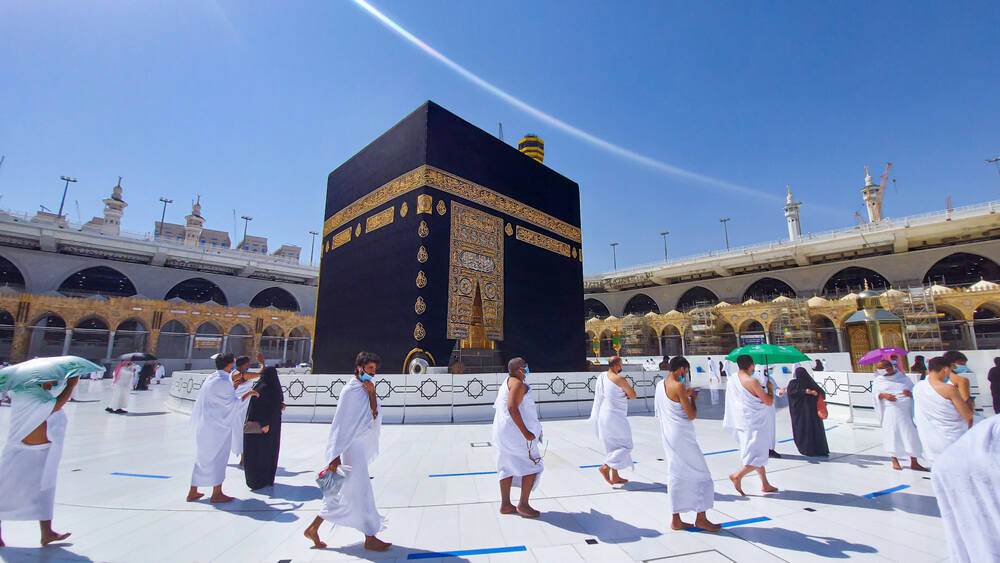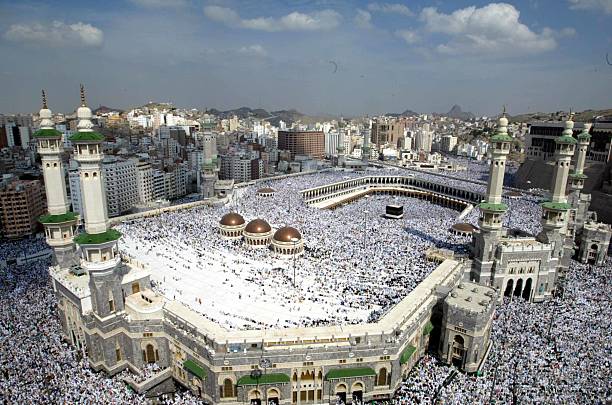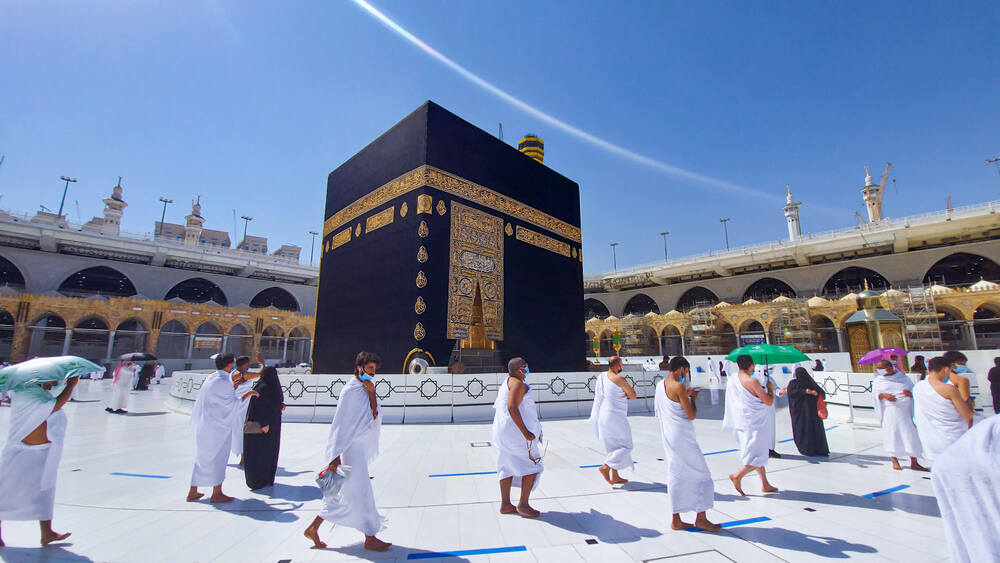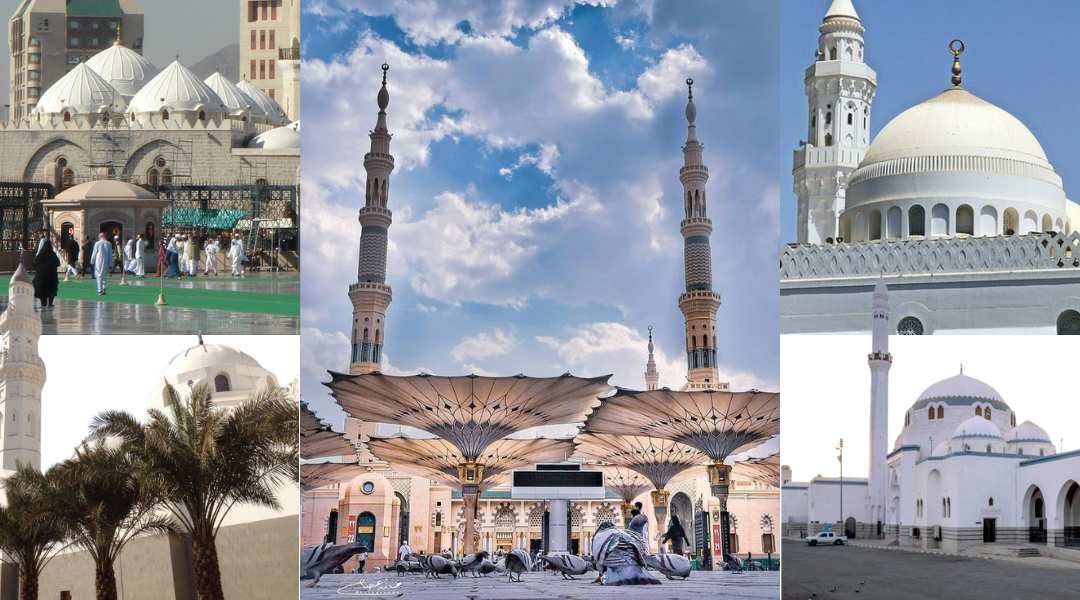Difference Between hajj & Umrah
Understand the difference between Hajj and umrah are one of the important divine journeys towards makkah that believers go to perform their Ibadah (practices). Both acts have great influence of devotion. These holy journeys provide a spiritual connection to improve their relationship with Allah and also get closer to Allah (SWT). This act of worship has effects on their spiritual connection, faith and also revitalise their Iman (faith) .Also hajj and umrah can help us to understand significant aspects that are brotherhood, timing, obligations and improve our practices, Now lets cherish main differences between hajj and umrah
Importance
Hajj holds a unique status as one of the five pillars of Islam – underscoring its essential role in faith. It is an obligatory act of worship that every Muslim must undertake once in their life - whoever is able to do so financially, physically, and emotionally. As a cornerstone of Islam – the hajj represents total submission to Allah and is the height of religious fervor, satisfying a crucial duty for Muslims. Umrah, on the other hand known as the “lesser pilgrimage,” umrah is strongly recommended in Sunnah but not required as a form of devotion. It has a profound importance in human life yet is not mandatory, but it provides an opportunity to cleanse ones’ soul, declare faith, and seek Allah (SWT)’s forgiveness. Umrah offers a deep connection and transforming experience that enables believers to achieve inner peace and grow closer to their creator.
Timing and duration
Hajj is a pilgrimage that must be carried out within a designated five-day time-bound in the Islamic lunar month of Dhul Hijjah (from the 8th to the 12th or 13th). It is a longer and more detailed journey, taking several days to finish as pilgrims partake in a sequence of defined rituals. This fixed timing highlights the communal aspects and collective importance of hajj – as millions of Muslims come together to carry out this holy obligation. In contrast, Umrah provides more flexibility, since it can be conducted at any point throughout the year - with the exception of the specific days of Hajj. It can usually be done in 3 to 6 hours hardly, allowing easier access for muslims' looking for a spiritually enriching way other than hajj.
Rituals
Hajj: Hajj consist of a series of extensive rituals, including:
- Assuming Ihram at the Miqat (specific entry points).
- Spending time in Mina, Arafat (Wuquf), and Muzdalifah.
- Stoning the pillars symbolizing Shaytan (Rami).
- Qurbani (sacrifice an animal).
- Tawaf (circumambulation around the Kaaba).
- Sai (walking between Safa and Marwa).
- Farewell Tawaf (Tawaf al-Wada). Umrah: The rituals of Umrah are fewer and include:
- Entering the state of Ihram.
- Performing Tawaf around the Kaaba.
- Completing Sai between Safa and Marwa.
- Concluding with Halq (shaving the head) or Taqsir (trimming the hair).
Locations Covered
Hajj involves a pilgrimage that extends beyond the Kaaba, its essential practices also covers various vital sites in makkah and Madinah including Mina, arafat, and Muzdalifah. These sites feature deep history and spiritual importance - exhibiting specific rituals conducted and each commemorates crucial events in islamic history. Whereas, umrah focuses on the practices involving tawaf and sai and is bound to the holy ground of masjid al-haram in makkah. Umrah does not need traveling to other sites - it is a more focused and concise form of prayer than the hajj.
Financial and Preparatory Aspects
Hajj is a very important aspect of worshiping, and requires some important arrangements and ground work such as; budgetary, muscular strength, planning, executive setups. It's an extended ritual and also a very time consuming process that requires proper substantial assets. Also Islamic principles are very reliable and friendly that aim to help believers on an individual level. They should first settle their debts and also achieve financial stability prior to starting this holy journey. Hajj is an essential aspect of islam and it's a life changing practice obligated by divine grace.It's a very happy and important moment in a muslim's life. Umrah, while it also needs careful preparation, Umrah is generally cheaper and easier to access than Hajj. Its reduced length and easier rituals render it an accessible choice for many, enabling followers to undergo spiritual renewal without the significant obligations linked to Hajj. Hajj and umrah are both meaningful journeys that hold distinct importance in islam. Hajj is a divine and mandatory religious tenet with a predetermined schedule and more detailed practices, while umrah is an optional act of worship that can be performed at any time in the year. Understanding these differences are pivotal for ones’ intending to undertake either pilgrimage. For additional assistance, seek advice from knowledgeable scholars or travel agencies that focus on Islamic pilgrimages. They can offer important guidance and support to help make your journey seamless and spiritually enriching. Read also for --> Umrah before Hajj and after ramadan





